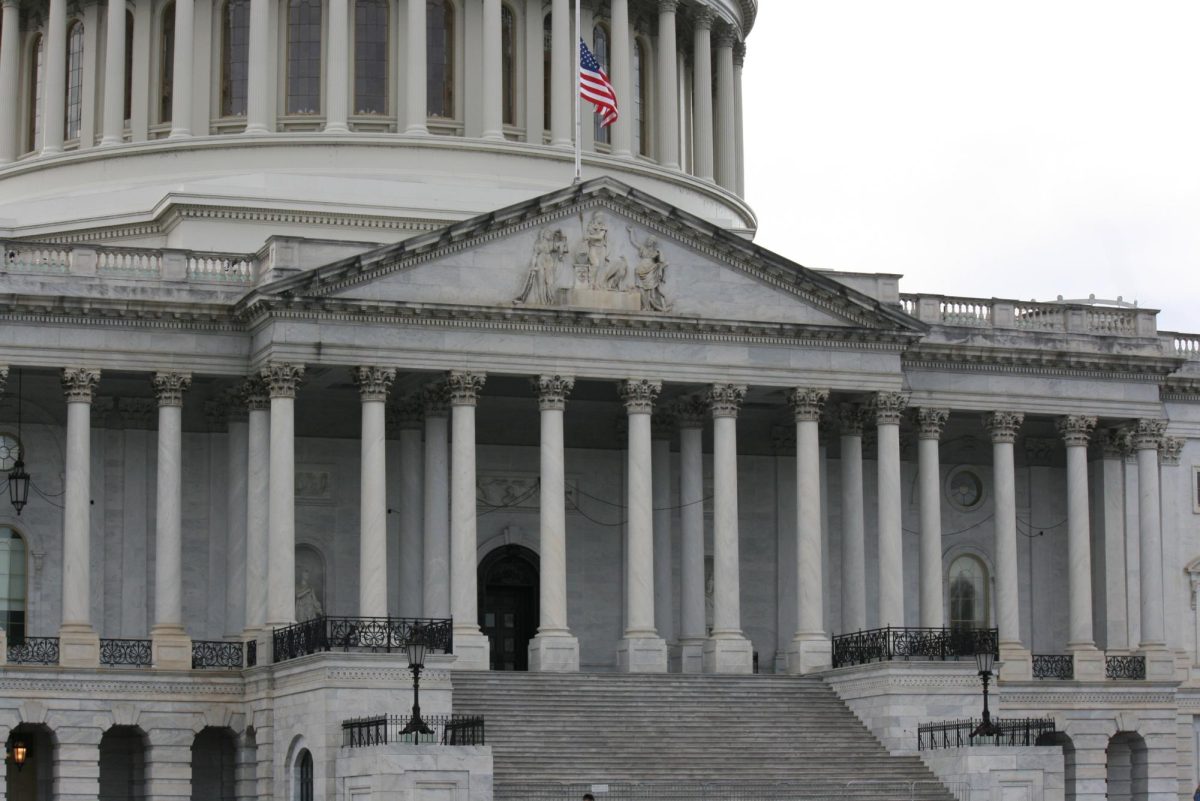The One Big Beautiful Bill Act (OBBBA), sweeping federal spending legislation signed by President Donald Trump on July 4, promises to reshape higher education financing across the country.
The new law raises federal taxes on university endowments, though the changes are unlikely to alter UChicago’s current 1.4 percent rate; eliminates or reduces several graduate student loan programs; and changes Pell Grant eligibility in ways that could make it more difficult for some students to attend UChicago.
The OBBBA institutes several changes to federal student loans and Pell Grants. Federal loans for graduate students will now be capped at $20,500 a year with a lifetime limit of $100,000, and loans for students in professional programs, like medical, dental, and law school, will be capped at $50,000 a year with a lifetime limit of $200,000. Tuition for a full course of study at current rates, not accounting for annual increases or other fees, is $295,872 at the Pritzker School of Medicine and $249,948 at the Law School.
The bill also eliminates the $19 billion Grad PLUS student loan program, which provided subsidized loans with lower interest rates and a more forgiving repayment schedule to help students to attend professional and graduate school. Unlike the standard federal loan program, Grad PLUS carried no annual limits, allowing students to borrow up to the cost of attendance.
During the 2022–23 fiscal year, UChicago graduate students received $48,364,239 from the program, according to a Chronicle of Higher Education analysis of federal data.
The OBBBA also caps the Parent PLUS loan program—which allows parents to take out loans to help their children cover educational expenses—at $65,000 per recipient. Advocates argue the restrictions will disproportionately affect Black and Latino families.
Under the new endowment tax formula, schools with higher endowment values per student will pay a higher tax rate. However, the new graduated rates only apply to universities that enroll more than 3,000 students; those with fewer than 3,000 pay no taxes on their endowments.
Schools with an endowment-per-student value of between $500,000 and $750,000 will continue to pay a 1.4 percent tax—the rate that previously applied to all schools with more than 500 students. Those with values between $750,000 and $2 million will pay 4 percent, while institutions with more than $2 million per student will pay 8 percent.
With an endowment of approximately $10.4 billion and more than 18,000 enrolled students, UChicago’s endowment will continue to be taxed at 1.4 percent, according to Karl N. Llewellyn Professor of Jurisprudence Brian Leiter. This is the same rate the University has paid since the 2017 Tax Cuts and Jobs Act signed during Trump’s first term.
Leiter wrote in emails to the Maroon, however: “The whole endowment tax serves no meaningful purpose: the amount of revenue it will generate is trivial, certainly when compared to the tax giveaways to the superrich in this monstrous bill.”
The Joint Committee on Taxation estimated that the endowment tax would lead to $761 million in revenue over the next 10 years. Meanwhile, per the Tax Foundation, extending the individual, estate, and business tax rates would decrease federal revenue by $4.5 trillion over the same period.
In the version of the bill initially passed by the House of Representatives last month, universities with endowment-per-student values above $2 million—only a few schools in the United States, including Harvard and Yale—would have faced a tax rate of 21 percent. That version calculated per-student endowment values by excluding international students, which would have pushed some universities, like Columbia, above the threshold, even if their total enrollment would place them below it.
The Pell Grant program, which provides aid to students with significant financial need, will receive a one-time $10.5 billion funding injection over the next three years. Additionally, new eligibility requirements will limit access for students who receive full scholarships from receiving a Pell Grant, and the program will expand to cover non-degree programs. According to the National Center for Educational Statistics, 15 percent of UChicago students receive a Pell Grant.
According to Leiter, the cumulative effect of these changes will be higher borrowing costs for graduate students, who will have to rely more heavily on private loans. These loans often carry significantly higher interest rates than federal loans and typically offer less favorable repayment conditions.
“The restrictions and ultimate elimination of the Grad Plus loans will have more serious effects elsewhere, but it will increase borrowing costs for UChicago students,” Leiter wrote. “I assume very few PhD students depend on the Grad Plus loans, but I’m less sure about grad students in Harris or Crown, where private lenders may not be as willing to lend money.”
“Its purpose is purely political, part of the general Republican war on universities,” Leiter wrote. “Its main effect will be to reduce financial aid for students and to reduce support for research, the latter of which already faces threats from Trump’s lawless withholding of NIH, NSF, and NEH monies.”








